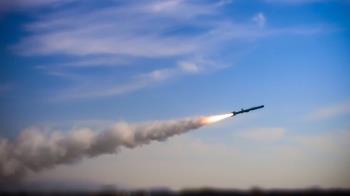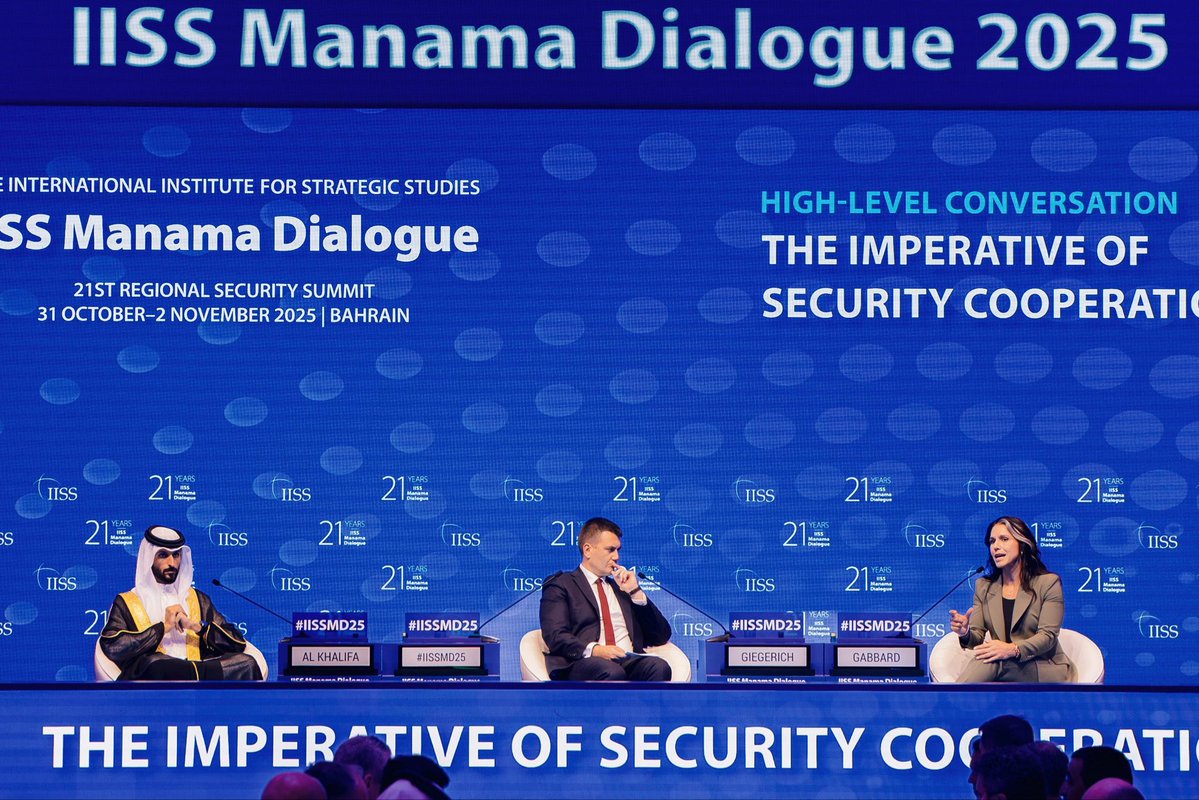Alwaght- The 21st session of Manama Dialogue was held by the International Institute for Strategic Studies (IISS) in association with the Bahraini foreign ministry in the capital Manama. The summit over years has become one of the most important annual security forums in the Persian Gulf.
The International Institute for Strategic Studies (IISS) launched the Manama Dialogue in 2004. Over the past two decades, the forum has grown into the West Asia's most prestigious gathering for debating political and security issues.
Unlike formal UN or Arab League meetings, the Manama Dialogue maintains a semi-formal nature. This structure deliberately fosters a more relaxed environment where policymakers can address sensitive subjects, including energy security, regional conflicts, the future of Arab-Israeli relations, global power competition, and threats posed by emerging technologies.
The forum is also notable for its balanced and diverse roster of attendees. This year's meeting brought together a multipolar mix of Western powers, including the US, Britain , and France, alongside Arab states such as Saudi Arabia, the UAE, Qatar, Egypt, and Bahrain, and representatives from East Asia and Africa. Approximately 700 guests from 65 countries gathered in Manama, with high-profile participants including the foreign ministers of Jordan, Oman, Bahrain, and Britain.
A highlighted feature of this year's dialogue was the inclusion of 27 young political and think-tank leaders, invited under the IISS "Young Leaders" program. This move signals the organizers' intent to cultivate a new generation of security elites, shifting the regional security discourse from traditional frameworks toward development-centric and technology-driven concepts.
Further underscoring the dialogue's practical focus were the sideline meetings: a total of 103 official bilateral talks took place between delegations, demonstrating that the forum is as much about concrete diplomacy as it is about debate.
This year, the summit discussed three main areas: First, redefining the regional security in the light of new political developments, especially after Gaza war, Lebanon developments, and Syria's new rule. Second, investigating the role of the global powers in ensuring regional security amid geopolitical competition among the US, Russia, and China. And third, outlook of economic and technological cooperation within the new security order in the Persian Gulf.
An analysis of the discussions at this year's summit reveals a central strategic horizon: the rebuilding of a new order in the region. The forum's proceedings highlighted a key regional shift, as Arab states work to maintain their traditional security ties with the US and Europe while simultaneously adopting a more pragmatic approach towards Eastern powers like China and India.
Furthermore, normalization with the Israeli regime remains on the agenda of the Arab diplomatic circles, though indirectly.
In essence, the Manama Dialogue this year more than any other time tried to reflect the region's transition from the logic of confrontation to logic of managing the rivalries.
Secret layers of the meeting: From normalization to Arab NATO
Many Arab officials on the sidelines of the summit made it clear that their current goal is not confrontation with Iran but rather the creation of a durable balance in regional relations; one that maintains deterrence while still allowing for economic and technological growth. Yet such views stood in sharp contrast to the official agendas of many other participants this year. In this context, the positions of US and British representatives could be seen as shaping the summit’s overall tone.
David Cooper, the British foreign secretary, said the Gaza Strip must be pulled out of its current “gray zone” between war and peace and needs immediate progress. He added that a new governing authority should take charge of Gaza’s reconstruction and that weapons must be collected from armed groups. This was a clear reference to disbanding Hamas and Islamic Jihad’s military wings.
Meanwhile, Tom Barrack, who is the US envoy to Lebanon and Syria, laid out another piece of Washington’s broader “New Middle East” map. He described Lebanon as a failed state, blaming Hezbollah for its collapse. According to him, Lebanon remains the only country that has not aligned itself with what he called the US-led Arab–Israeli agenda, and as a result, Washington has little interest in investing there. Barrack urged Beirut to open direct negotiations with Israel and rethink its current approach.
Unlike previous ones, this summit placed less emphasis on direct military alliances with the Americans. Instead, discussions centered on shared security, multipolar cooperation, and the emerging role of middle powers in regional affairs.
In the hidden side of the summit, quiet efforts were also underway to advance normalization between certain Arab states and Israel through informal security cooperation. While this was never mentioned publicly, side meetings involving NATO, Bahrain, and Jordan officials reportedly focused on maritime and intelligence coordination, essentially an extension of the Abraham Accords framework.
Finally, this forum should be regarded as a part of the Arab-Western camp's effort to coordinate their stances with the aim of establishing an Arab NATO against the Axis of Resistance in the region and also to prepare the ground for Arab normalization with the Israeli regime after end of Gaza crisis. It seems that many of the Arab leaders are pushing for Gaza ceasefire not to help the ill-fated Palestinians, but to pave the way for moving closer to the Israeli occupation.



























